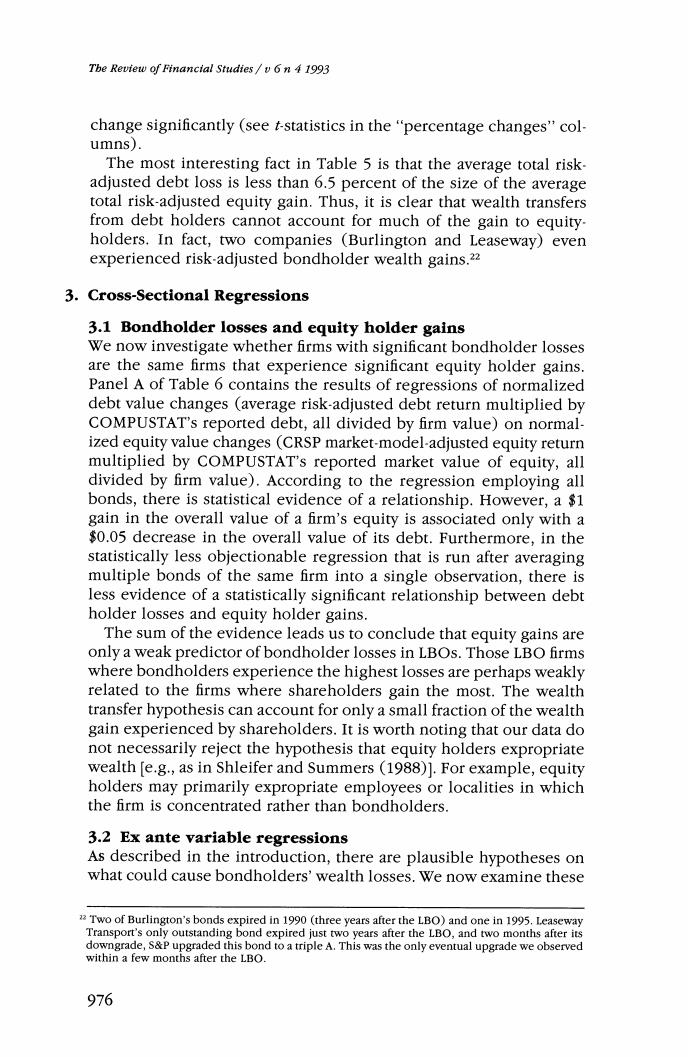正在加载图片...

Tbe Review of Financial Studies /v 6n 4 1993 change significantly (see t-statistics in the"percentage changes"col- umns). The most interesting fact in Table 5 is that the average total risk- adjusted debt loss is less than 6.5 percent of the size of the average total risk-adjusted equity gain.Thus,it is clear that wealth transfers from debt holders cannot account for much of the gain to equity. holders.In fact,two companies (Burlington and Leaseway)even experienced risk-adjusted bondholder wealth gains.22 3.Cross-Sectional Regressions 3.1 Bondholder losses and equity holder gains We now investigate whether firms with significant bondholder losses are the same firms that experience significant equity holder gains. Panel A of Table 6 contains the results of regressions of normalized debt value changes (average risk-adjusted debt return multiplied by COMPUSTAT's reported debt,all divided by firm value)on normal- ized equity value changes (CRSP market-model-adjusted equity return multiplied by COMPUSTAT's reported market value of equity,all divided by firm value).According to the regression employing all bonds,there is statistical evidence of a relationship.However,a $1 gain in the overall value of a firm's equity is associated only with a $0.05 decrease in the overall value of its debt.Furthermore,in the statistically less objectionable regression that is run after averaging multiple bonds of the same firm into a single observation,there is less evidence of a statistically significant relationship between debt holder losses and equity holder gains. The sum of the evidence leads us to conclude that equity gains are only a weak predictor of bondholder losses in LBOs.Those LBO firms where bondholders experience the highest losses are perhaps weakly related to the firms where shareholders gain the most.The wealth transfer hypothesis can account for only a small fraction of the wealth gain experienced by shareholders.It is worth noting that our data do not necessarily reject the hypothesis that equity holders expropriate wealth [e.g.,as in Shleifer and Summers (1988)].For example,equity holders may primarily expropriate employees or localities in which the firm is concentrated rather than bondholders. 3.2 Ex ante variable regressions As described in the introduction,there are plausible hypotheses on what could cause bondholders'wealth losses.We now examine these 2Two of Burlington's bonds expired in 1990(three years after the LBO)and one in 1995.Leaseway Transport's only outstanding bond expired just two years after the LBO,and two months after its downgrade,S&P upgraded this bond to a triple A.This was the only eventual upgrade we observed within a few months after the LBO. 976